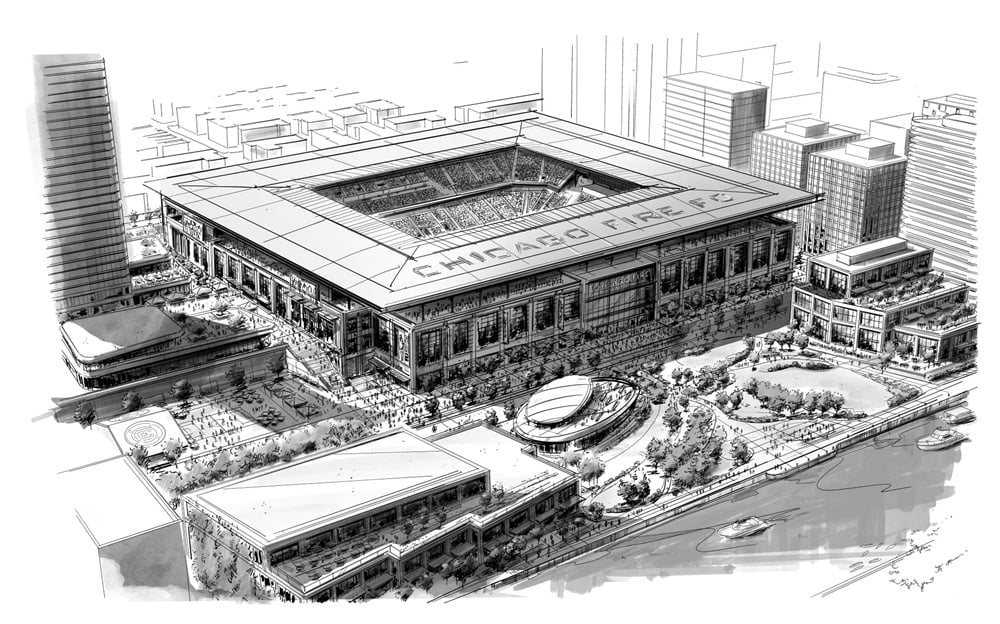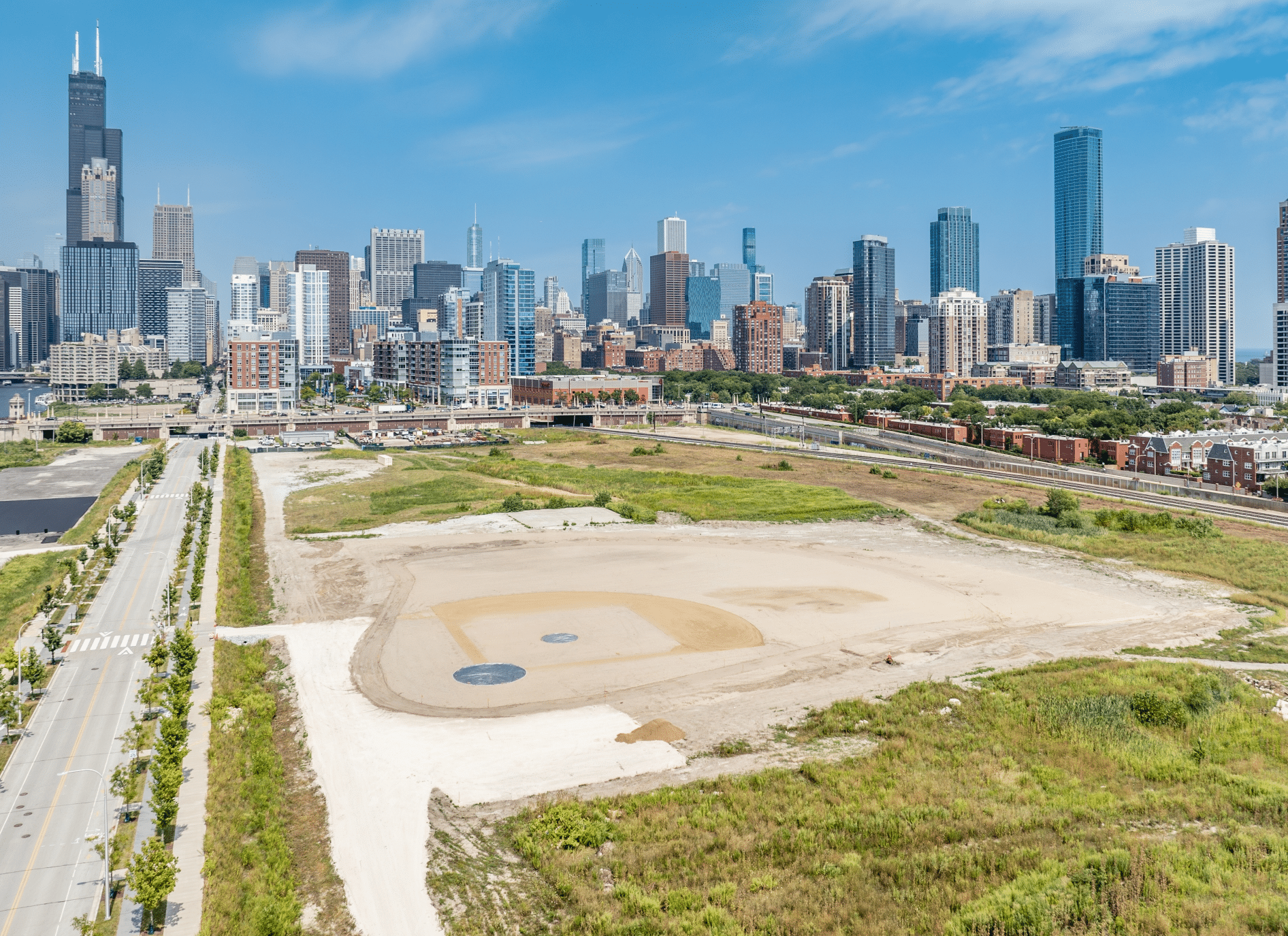The $650M Power Move That May Revive The 78 and South Loop
On June 3, 2025, the Chicago Fire Football Club unveiled plans for a privately funded, $650 million, 22,000-seat soccer-specific stadium in Chicago’s South Loop. This stadium will serve as the anchor for “The 78,” a long-delayed 62-acre mixed-use development along the Chicago River. The project is expected to open in spring 2028.
This announcement marks a significant milestone for Chicago’s commercial real estate market and sets a new precedent for urban stadium development.
A Catalyst for Urban Revitalization
The site for the new stadium, known as “The 78,” has remained undeveloped for decades. Originally a landfill and railyard, the area has been in development limbo despite its prime location near downtown Chicago. The introduction of the stadium is poised to breathe new life into this dormant parcel.
The broader development plan for The 78 includes affordable housing, a riverwalk, and commercial amenities. While funding for these mixed-use components has yet to be secured, the stadium’s construction is expected to serve as a catalyst for attracting additional investment and accelerating the area’s transformation.

Implications for Commercial Real Estate
The stadium’s development is anticipated to have a ripple effect on Chicago’s commercial real estate landscape. By anchoring The 78, the stadium is expected to stimulate demand for retail, hospitality, and office spaces in the vicinity. This aligns with a growing trend of integrating sports venues into mixed-use developments to create vibrant, multi-purpose urban districts.
Moreover, the stadium’s proximity to public transportation—served by multiple CTA lines—enhances its accessibility, making it an attractive destination for both residents and visitors. This accessibility is likely to increase foot traffic and economic activity in the surrounding areas, further boosting commercial real estate prospects.
A New Model for Stadium Development
The Chicago Fire’s approach to financing the stadium sets a new standard in stadium development. By opting for private funding, the project avoids the political and public resistance often associated with taxpayer-funded stadiums. This strategy not only expedites the development process but also demonstrates a commitment to responsible urban planning.
In contrast, other Chicago sports franchises have faced challenges in securing public funding for new stadiums. For instance, the Chicago White Sox’s proposal for a new stadium at The 78, which included a request for over $1 billion in public financing, met with political opposition and has stalled. Similarly, the Chicago Bears’ plans for a new stadium have been complicated by funding and location disputes.

Enhancing the City’s Sports Infrastructure
The new stadium is poised to enhance Chicago’s sports infrastructure by providing a dedicated venue for soccer in the heart of the city. Since its inception in 1998, the Chicago Fire has played at various venues, including Soldier Field and suburban SeatGeek Stadium. The new stadium will offer a permanent home that reflects the team’s identity and fosters a stronger connection with fans.
Beyond serving as a sports venue, the stadium is envisioned as a community hub. Team owner Joe Mansueto emphasized that the project is “more than just a stadium,” aiming to create a space where fans of all ages and backgrounds can come together to celebrate the sport.
Looking Ahead
The Chicago Fire’s new stadium represents a significant investment in the city’s future, with far-reaching implications for commercial real estate and urban development. By revitalizing a long-neglected area and setting a new precedent for privately funded stadiums, the project underscores the potential of sports infrastructure to drive economic growth and community engagement.
As construction progresses, stakeholders across the city will be watching closely to see how this ambitious project reshapes Chicago’s landscape and influences future developments. For more on the statium and how it may influence the local market, contact our team of Chicago commercial real estate agents.

